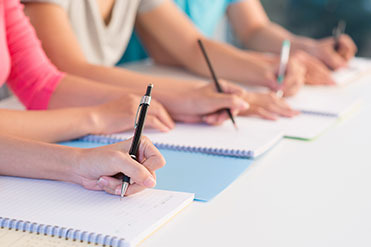Prerequisites
The teaching of Etiotherapy is restricted to people holding a paramedical or medical diploma.
Etiotherapy is a technique with therapeutic aims and only that.
Its principles and concepts are not based on any mystical or esoteric argument.
Etiotherapy doesn’t belong to any philosophical, religious or political school of thought.
In Canada and North America the teaching format may differ slightly at this point.
Year 2
Learning about the reflex pulse, adaptation treatment and its integration into each personal therapy.
The modules take place over two days:
- a day of theory
- a day of practice
Only the first 20 registered per session will be taken into account.
Classes take place at the François Laborie room, 20 rue d’Anjou, 75008 Paris (Metro Madeleine).
- Definition, history of etiotherapy
- Definition of energy
- Filter definition
- Definition of pulse
- Energy vortices
- The subtle bodies
- Pulse technique.
- Blocking of the diaphragms.
- Perception of floors.
- Rocking of the chakras.
- Restarting a treatment.
- Overview of filters.
- Concept of synchronicity.
- The somatotopy of the ear
- Concept of anchor point, the S.A.C.
- Coping treatment theory
- Principle and application of adaptation treatment.
- Causal imprinting
- Loss of identity
- The consistency filter
- Integration of adaptation processing or emotional processing.
- The treatment of anger on the posterior muscular chains.
- The muscular chains, the lingual chain
- The fear/anger system
- The verticalization of man
- The self-organization of life
- Using the consistency filter.
- Differentiation, loss of identity, causal impregnation.
- The transition from energy information to matter energy
- The vectors and supports of this information: – light, sound, waves
- The role of the TMJ, concept of occlusion
- Practice of acquired knowledge.
- How to move a point on the body.
- How to work with the eyes.
- Approach to cell physiology
- Where is memory located: CNS or colloidal medium?
- Practice of acquired knowledge.
- Comprehensive care.
- Retro and interactive organization of the 7 fundamental glands
- Concept of mutation
- Operability, the minimum required
- Revisions
- End of 1st year exam
Year 2
Approach and practice of ternary logic:
The modules take place over two days:
- a day of theory
- a day of practice
Only the first 20 registered per session will be taken into account.
Classes take place at the François Laborie room, 20 rue d’Anjou, 75008 Paris (Metro Madeleine).
- Understanding and implication of an approach to reality according to ternary logic
- The fractalization of information.
- Interaction, internal and external aspect.
- Review of the acquired knowledge of the 1st year
- Approach to the work of Stéphane Lupasco
- Description of the tables of deductions, their use as a therapeutic tool.
- Work on the 1st deduction table.
- Integration of the notion of dynamics with adaptation treatment.
- The development of the three embryonic layers
- Connections with certain auriculomedicine bases.
- Consequence for etiotherapy.
- Work on the 2nd deduction table.
- Learning of different complementary ear points to help with a more global vision.
- Concept and approach to space-time.
- Holography, homothety, isomorphy.
- Morphogenetic field theory approach
- Work on the 3rd deduction table.
- Practice of dynamic and simultaneous integration of the 3 tables.
- Escape theory.
- Concept of synchronicity
- Back to the twin.
- Summary and practice
- Separability and non-separability. Fusion, resonance, psychic power and our ethical responsibility, magic.
- Summary and practice
- Synthesis, interaction and integration of etiotherapeutic concepts in the dynamics of life and evolution: frequency life, SAC, mutation.
- End of 2nd year exam
Education planning 2023-2024
Etio 1st year
- No date
Etio 2nd year
- No date
Special Trainings : We will endeavor to cover postgrads (lectures) via zoom.
Acquired knowledge and practice sharing (AKPS)
The AKPS takes place in groups of 6 to 7 practitioners who have completed their training under the supervision of an elder
to bring about through sharing, understanding and ways to better operability while practicing.
- No date
Practical work
Application and experimentation for each student of the course content taught the day before. They can be re-practiced on demand by students.
Workshops
Jean-Paul Sagniez in Paris :
- No date
Christopher Fleischner in North America :
- No date
Registrations
* Required fields
** The information collected through this form is recorded and transmitted to the IFE association (Patrick LATOUR) and allows us to send you any response to a request via the contact form. The legal basis for processing is consent. The data collected is kept for 3 years on digital media. You have a right of access, rectification, opposition, limitation of processing and erasure. To find out more about the use of your data and your rights under the amended Data Protection Act as well as the GDPR, please consult our data protection policy or contact us at lapatetio@gmail.com

